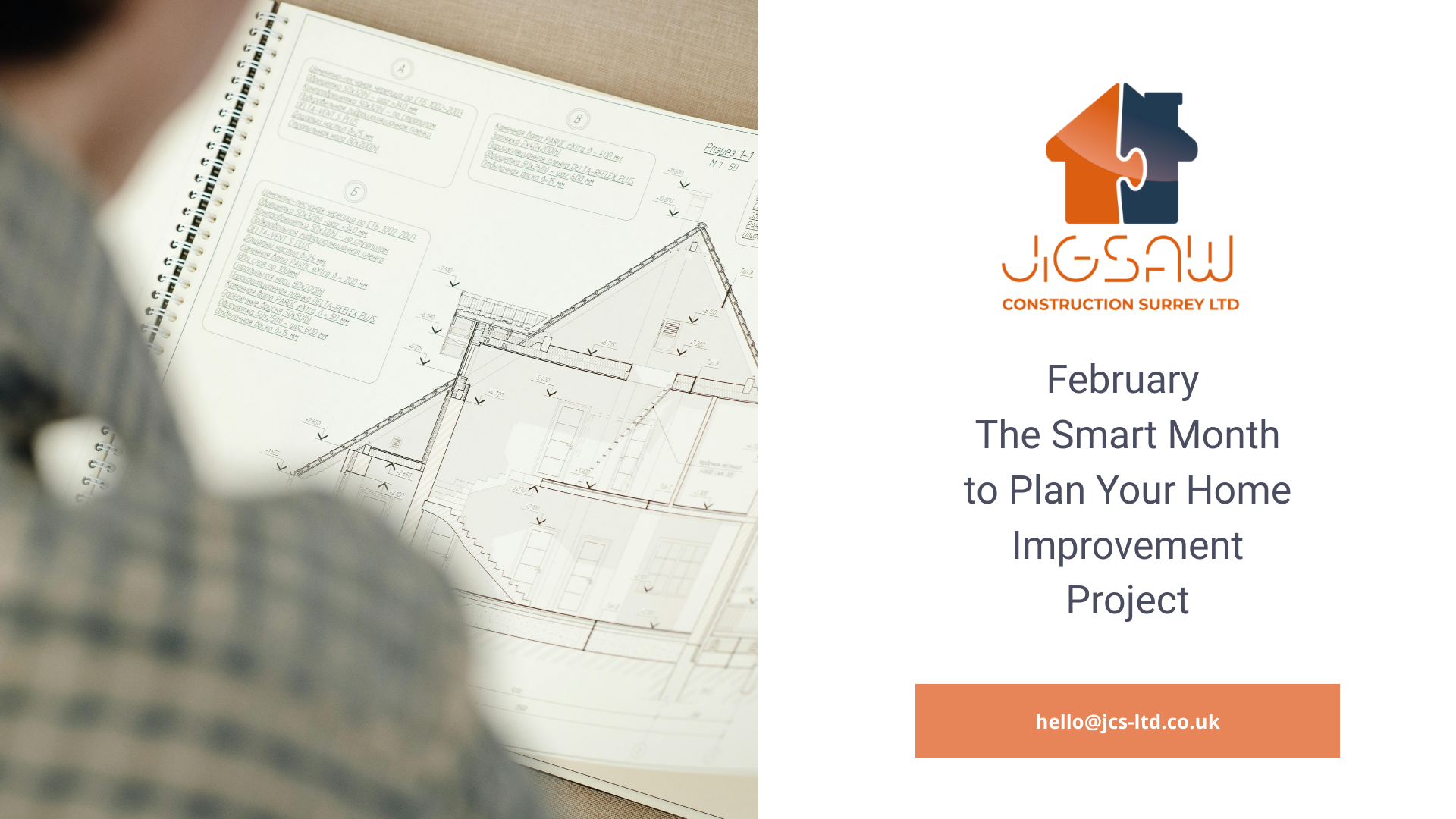Why Winter Is the Perfect Time to Plan Your Home Extension in Surrey

Introduction
When the weather turns cold, most homeowners put off thinking about renovations until spring. But here’s the truth — winter is actually one of the best times to plan your home extension.
While it’s not ideal for building work, it’s the perfect season to design, budget, and prepare. By using the quieter months wisely, you can hit the ground running in spring.
At Jigsaw Construction Surrey, your trusted local builders in Surrey, we’ve helped many homeowners get a head start — saving them time, money, and stress.
1. Beat the Spring Rush for Builders
Spring and summer are the busiest seasons for construction. By starting your planning in winter, you’ll:
- Beat the rush for reliable home extension builders in Surrey
- Have more flexibility with start dates
- Secure better availability and pricing
When the first signs of spring arrive, you’ll already be ahead — with your plans, approvals, and contractor locked in.
2. Time to Perfect Your Design and Planning Applications
Winter gives you breathing space to plan properly. Use this time to:
- Finalise your design and layout with an architect or designer
- Submit your planning application (which can take 6–10 weeks to process)
- Research materials, finishes, and energy-efficient upgrades
Planning ahead ensures your home extension project runs smoothly once construction begins — with fewer surprises and delays.
3. Easier Budgeting and Better Quotes
During winter, builders in Surrey often have more time to prepare detailed quotes and help you fine-tune your budget.
At Jigsaw Construction Surrey, we find that clients who plan early get clearer, more accurate pricing and avoid last-minute cost increases.
Taking time now means you can make informed choices — without the pressure of an imminent build.
4. Minimise Disruption to Family Life
No one wants dust and noise in the middle of summer! By planning in winter, you can schedule your build for early spring or summer, when you’ll naturally be spending more time outdoors.
That means less disruption — and you’ll be relaxing in your new space just as the weather warms up.
5. A Fresh Start for the New Year
Winter is a great time to dream big. Whether it’s a kitchen extension, open-plan living area, or loft conversion, planning now means you can start the new year with a clear vision for your home.
Your future self will thank you when the work kicks off smoothly — and your family enjoys a bigger, brighter home by summer.
Final Thoughts
While many homeowners slow down in winter, the savvy ones plan ahead.
Use these colder months to design, plan, and prepare your home extension in Surrey — and you’ll be ready to build when the weather improves.
At Jigsaw Construction Surrey, we’re here to help you every step of the way — from the first idea to the final build.
Start your 2026 project now — book a free winter consultation with our team today.




